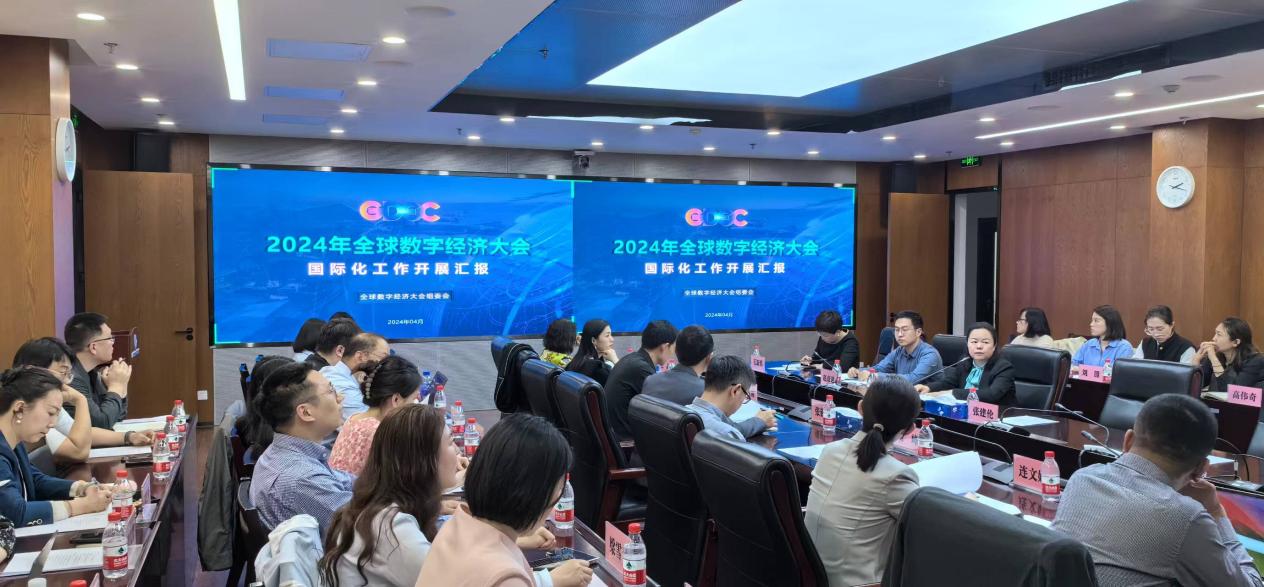A seminar on Beijing software enterprises going global, co-organized by the Beijing Municipal Bureau of Economy and Information Technology and the International Economic and Technological Cooperation Center of the Ministry of Industry and Information Technology (MIIT), was held on April 18, under the guidance of the Department of Information Technology Development under MIIT. The event aimed to implement the Beijing Initiative on the Belt and Road International Digital Economy Cooperation at the national level and support international cooperation in the digital economy under the MIIT-led multilateral and bilateral mechanisms. Leveraging the overseas sessions of the Global Digital Economy Conference as cross-border cooperation platforms, it organized 30 enterprises including software companies and cross-border cloud computing service providers to discuss solutions for global digital economy cooperation, share experiences and channels for going global, and strengthen resource alignment, so as to empower Chinese software enterprises to expand overseas markets and participate in Belt and Road cooperation.

Zhang Jianlun, director of the division for digital economy promotion in the Department of Information Technology Development under MIIT, pointed out that the Global Digital Economy Conference is an important platform for promoting international digital economy cooperation, and the Singapore session of the 2023 Conference directly advanced the implementation of multiple projects. The Global Digital Economy Conference 2024 will also launch overseas sessions soon. MIIT plans to solicit best-practice cases for international digital economy cooperation in a wider manner, in an effort to promote international digital economy cooperation and facilitate Chinese enterprises to go abroad.
At the seminar, officials from the Beijing Municipal Bureau of Economy and Information Technology introduced policies on encouraging software enterprises to go global, which aim to support the internationalization of Chinese software and lower the costs and technical thresholds for enterprises to enter overseas markets. Enterprises are also encouraged to set up overseas R&D centers and public service platforms.
The Organizing Committee for the Global Digital Economy Conference reviewed the internationalization work and achievements of the Conference and reported on the arrangements for expanding the Conference’s global influence and the work plan for organizing overseas sessions in 2024. The first is to focus on promoting the construction of municipal-level international cooperation platforms to expand the circle of friends among digital economy partner cities; the second is to publicize and promote high-quality Chinese software with the help of overseas exchange platforms such as the Middle East session of the Global Digital Economy Conference; the third is to invite foreign chambers of commerce and industry associations and other delegations to Beijing to participate in the Conference and exchange. Also, the Conference will continue to explore and promote the establishment of software industry incubation bases and industrial investment funds jointly by international partner cities and Beijing. Efforts will also be made to optimize the network environment, strengthen Sino-foreign technical exchanges, and explore cross-border data flows.
A number of well-known enterprises discussed the importance of cyber security, the innovation trend of digital marketing and advertising, the digital transformation of the construction industry, and the role of cloud computing and internet services in empowering enterprises to go global from different perspectives. They also shared the latest achievements and solutions in fields like digital office, cyber security, and smart city, as well as views on the opportunities and challenges of expanding overseas markets. All of this provided valuable reference and inspiration for participating enterprises and laid a solid foundation for future cooperation.
During the seminar, the participating companies had in-depth exchanges and discussions on how to further participate in cooperation in the Middle East under framework of the Global Digital Economy Conference. The business representatives agreed that the Middle East region has a strong willingness to cooperate and great potential for cooperation, and is an important stage for global digital economy cooperation. Through this seminar, all parties gained a deeper understanding of digital economy cooperation with the Middle East, laying the groundwork for future cooperation.
The successful seminar served as a bridge linking enterprises around the world and provided a valuable exchange platform and cooperation opportunities for cooperation between Chinese enterprises going abroad. In the future, more seminars will be organized to enable enterprises to deepen understanding of overseas markets, more effectively align with international resources, and jointly promote the high-quality development of the digital economy.